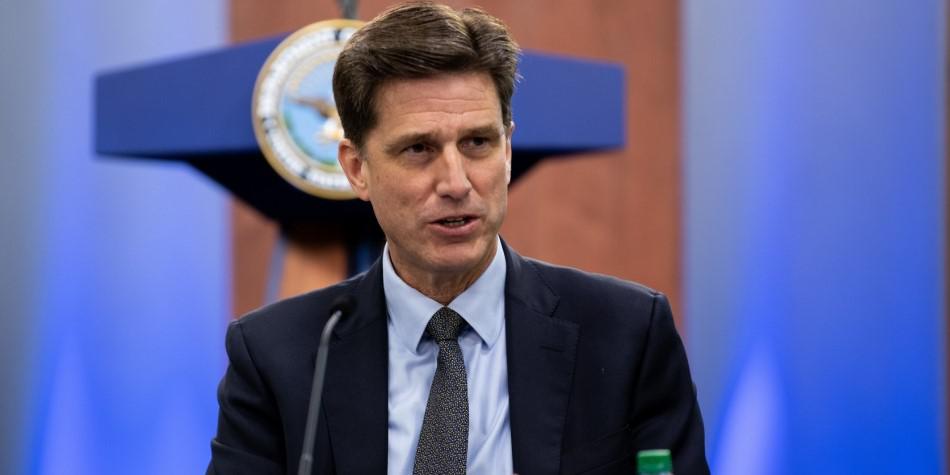Senate Hearing Puts FCC Ligado Decision in the Crosshairs
On May 6, the Senate Armed Services Committee held a hearing, “Department of Defense Spectrum Policy and the Impact of the Federal Communication Commission’s (FCC’s) Ligado Decision on National Security,” to discuss the security risks of the FCC granting the company a license modification to commence terrestrial wireless operations. Taking that action presents a great risk to the military’s Global Positioning System (GPS) operations, now run by the U.S. Space Force, Dana Deasy, chief information officer, Department of Defense, told the committee.
In April, the FCC voted unanimously to approve the company’s application to start a nationwide cellular network using a frequency adjacent to the spectrum segment used by the military’s GPS L1 signal.
Organizations quickly weighed in against the measure, with the U.S. Department of Homeland Security stating that it recommended that the FCC deny Ligado’s license. “[The DHS] remains concerned that an approval creates a high degree of uncertainty for our public and private sector partners, many of whom, along with the Departments of Homeland Security, Defense and Transportation, rely on precise and uninterrupted positioning, navigation and timing (PNT) data from the GPS to ensure the security and resilience of their infrastructure,” the DHS statement said.
The Department of Defense (DOD), as part of the National Space-Based PNT Executive Committee—which includes nine federal agencies who use GPS—first sounded the alarm to the National Telecommunications and Information Administration in 2012 concerning earlier versions of Ligado’s proposed network and the harmful interference it would cause for GPS.
Since then, multiple defense secretaries have raised concerns about Ligado’s plans, Deasy noted, and those concerns have not been resolved.
Moreover, the department does not buy into the FCC’s justification that their approval ruling placed “stringent conditions” on Ligado’s planned network deployment to ensure that GPS users would not encounter harmful interference. “These conditions will not protect GPS receivers against harmful interference and are thus unrealistic and unacceptable to the department,” Deasy stressed.
“The inability of Ligado to meet these stringent conditions in order to protect GPS is why the FCC should have rejected the Ligado proposal, based on the extent that no practical solution or mitigation is available that would permit Ligado to operate without high likelihood of widespread interference,” Deasy concluded. “The bottom line is that there are too many unknowns and the risks are too great to allow the proposed Ligado system to proceed in light of the operational impact to GPS.”
The FCC approved Ligado’s use of a so-called guard band at 23 megahertz (MHz) to protect GPS L1 receivers from Ligado’s terrestrial-based network. That guard band wouldn’t work, as the GPS receivers that get signals from space would be overpowered by the company’s terrestrial network regardless of the protection, the DOD CIO noted.
“Despite this guard band, many varieties of GPS receivers would still suffer interference,” he stated. “To be clear, Ligado’s proposal is to field a terrestrial-based network. GPS L1 receivers are designed to tolerate interference from space systems in adjacent spectrum, but not to tolerate interference from terrestrial systems in the adjacent band.”
While the FCC said it would require the company to limit the power levels of its base stations, even the substantial proposed reductions would not meet the power levels that could be tolerated in spectrum bands adjacent to GPS L1 signals, Deasy continued.
In addition, the FCC’s coordination procedures, such as requiring the company to continuously monitor the transmitting power of base stations and follow procedures for responding to reports of interference, will not work given the massive scale, the DOD CIO said. “This challenge is compounded by the fact that most GPS users would never know if Ligado disrupted their equipment in the first place or who to call about a problem,” he said.
And while the FCC expects Ligado to protect U.S. government GPS receivers and to repair or replace affected receivers, Deasy posed this measure “overlooks the classified nature of military GPS use and the sheer number of government receivers and military platforms affected.” As such, the commission’s expectations are “unreasonable and could never be employed in real practice,” he testified.
Furthermore, the DOD does not see that Ligado actually has a technically viable 5G solution, as the company promises. And although the department is hosting a spectrum sharing initiative—which advances the FCC’s 3.5 GHz Citizens Broadband Radio Service sharing decision—the DOD is sharing spectrum between 3.55-3.65 GHz, a vital air search radar band for Navy operations. That arrangement will allow the FCC's first mid-band 5G spectrum auction in July 2020, Deasy explained.
“The department recognizes the need to share spectrum where and when it makes sense,” the DOD CIO observed. “The non-contiguous bands that Ligado could bring to market are fragmented and impaired. The band in which Ligado operates is not part of the FCC’s 5G FAST Plan, which is the commission’s blueprint for advancing U.S. interests in 5G.”
You may also be interested in:





Comments